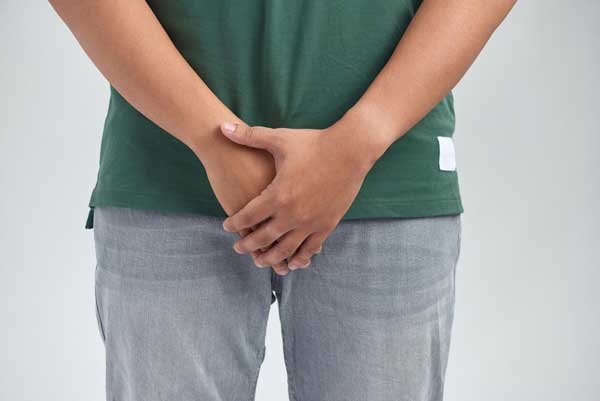Prostate health is a crucial concern for men, particularly as they age. Conditions like benign prostatic hyperplasia (BPH) and prostatitis can cause urinary symptoms and discomfort. While medical interventions exist, making dietary changes can also contribute to better prostate health. In this article, we will explore the impact of caffeine, food choices, and beverages on prostate health. Additionally, we will delve into a prostate-friendly diet that includes specific foods to promote a healthy prostate.

The Link Between Caffeine and Urinary Symptoms
Caffeine, a common stimulant found in coffee, tea, soda, and chocolate, can act as a diuretic. This means it increases the frequency, urgency, and volume of urination. A study revealed that men who consume 234 milligrams or more of caffeine daily have a 72 percent higher chance of experiencing urinary incontinence compared to those who consume less caffeine. Moreover, caffeine can worsen urinary or pain symptoms associated with prostatitis. Understanding the impact of caffeine consumption is crucial for managing prostate health effectively.
The Role of Testosterone and Prostate Enlargement
The walnut-shaped prostate gland, located behind the bladder, is controlled by powerful hormones like testosterone. As men age, the prostate gland can become enlarged, leading to BPH. Testosterone is converted into dihydrotestosterone (DHT) in the prostate gland, and high levels of DHT cause prostate cells to enlarge. While there are various factors contributing to prostate enlargement, dietary choices play a role in its prevention. Incorporating sufficient vegetables into the diet is essential to reduce the risk of prostate enlargement.
Foods to Avoid for an Enlarged Prostate
Dietary choices significantly impact prostate health. Research suggests that consuming excessive amounts of red meat can increase the risk of prostate enlargement and cancer. In fact, daily meat consumption triples the risk of prostate enlargement. Similarly, regular consumption of dairy products, such as butter, cheese, and milk, has been linked to an increased risk of BPH. Therefore, reducing or eliminating these foods from the diet may help alleviate BPH symptoms.
Other Factors Affecting Prostate Health
While food choices are vital, other factors also influence prostate health. Alcohol consumption can stimulate urine production, potentially worsening BPH symptoms. High salt intake through processed foods and excessive sodium consumption may contribute to urinary tract symptoms associated with BPH. Avoiding alcohol and following a low-sodium diet can be helpful for managing prostate health. Furthermore, specific drinks, such as green tea and hibiscus tea, offer benefits due to their potent antioxidants, making them excellent choices for prostate health.
Building a Prostate-Friendly Diet
Adopting a prostate-friendly diet can significantly contribute to maintaining prostate health. A diet rich in fruits, vegetables, and healthy fats is believed to protect the prostate. Including foods like salmon, sardines, and trout, which contain omega-3 fatty acids, helps prevent inflammation within the body. Tomatoes, with their lycopene content, offer benefits to prostate gland cells when cooked. Berries are excellent sources of antioxidants that eliminate free radicals. Cruciferous vegetables like broccoli, bok choy, cauliflower, brussels sprouts, and cabbage contain sulforaphane, which targets cancer cells and promotes prostate health. Nuts, shellfish, legumes, citrus fruits, onions, and garlic are also beneficial additions to a prostate-friendly diet.
Conclusion
Taking care of your prostate health involves making conscious dietary choices. By avoiding foods like red meat and dairy products and limiting caffeine and alcohol intake, you can reduce the risk of prostate enlargement and associated symptoms. Building a prostate-friendly diet that includes fruits, vegetables, healthy fats, and specific foods like salmon, tomatoes, berries, broccoli, nuts, and citrus fruits can significantly contribute to prostate health. Remember, making these dietary changes, along with seeking medical guidance, can lead to improved prostate health and overall well-being.
